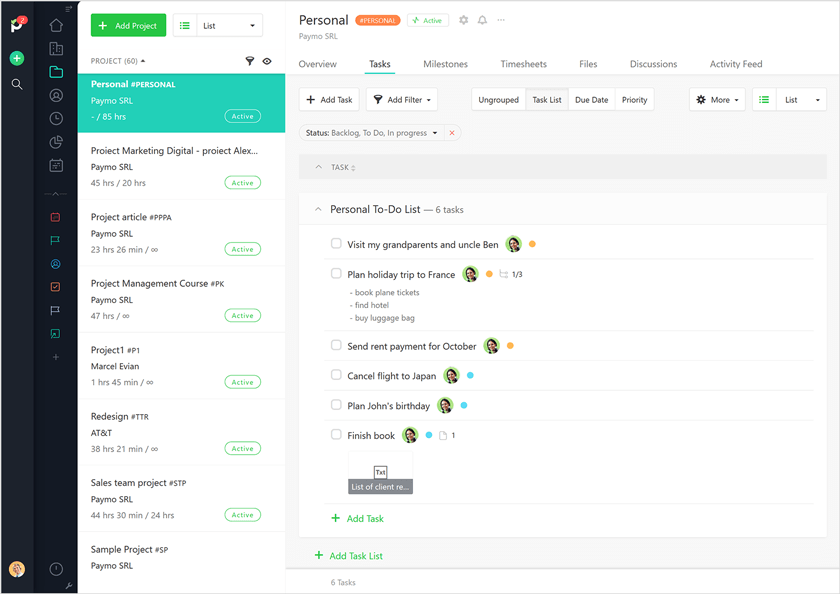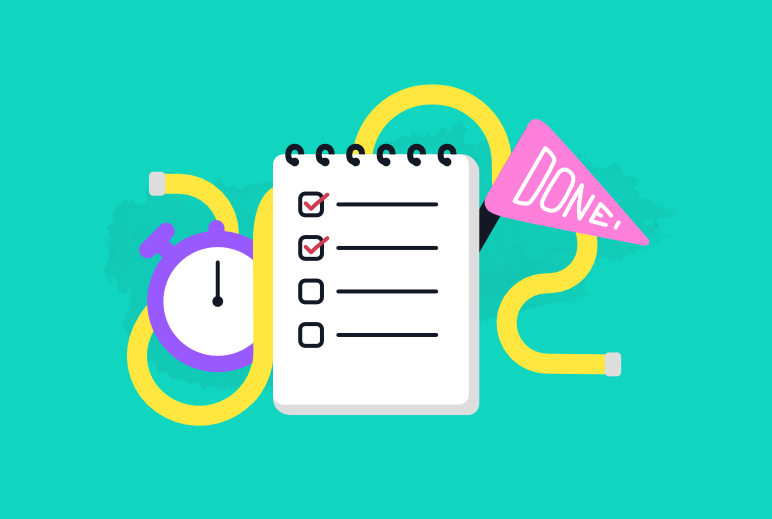The transition to work from home has been stressful for many, thanks to the changing work environment brought about by the COVID-19 pandemic. Plus, job-hopping and job shortages generated by the Great Resignation piggy-backed on the pandemic. There is one silver lining, though—productivity improved.
According to an internal survey by Chegg, 86 percent of employees feel their productivity is good or better than it was before, as reported by the NY Times.
Still, there’s always room for improvement. If the clothes on the couch and your little one in the other room are hindering your productivity, it’s time to get resourceful. Use these simple but impactful ideas to get more done during the workday without adding more hours to the clock.
1. Improve Your Listening Skills
Actively listening and truly understanding what’s being said is a critical skill in every workplace. Author of Leading the Workforce of the Future, Brigette Hyacinth says, “Don’t just listen with the outer ear but with the inner ear. Listen with the intent to hear and understand.”
When you listen better, you don’t have to re-ask questions because you didn’t hear the person the first time. You won’t miss important details that are important to the project, edits, or rework. At the end of the day, good listening means fewer mistakes.
To improve your listening, implement the 5 Power Habits of Good Listeners:
- Listen out of curiosity, not generosity
- Repeat back what you hear
- Use and show non-verbal encouragement
- Listen first, formulate your response after
- Avoid passing judgments
I encourage you to listen to this TEDTalk by Julian Treasure in regards to listening. He shares five ways to re-tune your years for conscious listening in our louder and louder world.
Be More Productive: In addition to the listening tips above, don’t forget to limit distractions. Keep your phone on silent, don’t check email during meetings, and stay tuned to what the person in front of you is saying to make sure you get every detail.
2. Evaluate Your Project Clarity
Knowing the timeline, client goals, and overall expectations of each project allow you to be more productive from the start. Instead of getting five hours into a project, only to realize that you didn’t have clarity on the client’s needs, you can go into it with all the information you need to be productive and successful.
While listening is essential to getting clarity on a project, putting these details on paper—in an email, a project brief, etc.—ensures that nothing is forgotten. By evaluating your current project workflows, ensure that project clarity isn’t hindering productivity. When doing so, ask yourself the following questions:
- Are opportunities for additional checks and balances?
- Where might the team need more information?
- At what points should the client offer feedback to guide the project?
- Where do I, or other employees, commonly make mistakes or get caught up?
The answers to these questions will allow you to create workflows that allow yourself and your co-workers to be as productive—and efficient—as possible.
Be More Productive: a checklist that you can use to ensure you have all the denials you need for meetings, big projects, or new clients. This also ensures you’re listening in for the details that matter most so you can be productive when ready to get to work.
3. Update Your To-Do Lists
Don’t just write what you have to do on your to-do list. Turn it into a productivity-boosting tool by including all the important details for each task, so you don’t have to go digging for them later. For example, if you have a Zoom call scheduled, include the video link or dial-in number. You may also want to link to the call agenda or any notes you need to have on hand.
Keeping everything in one location means you won’t have to hunt through your emails to find a meeting code or agenda—wasting time and energy and potentially making you late for the call. More importantly, documenting what the item requires for completion means you won’t ever forget why you added it in the first place. The few minutes you save each day can add up, giving you more time and helping you feel more organized.
If your current to-do list is holding you back, consider asking your leader if you can test work management software. This tool allows you to create assignments for yourself and other team members, including all the information needed to complete them.

To-do list in Paymo
Be More Productive: If you can’t get manager buy-in for new software, update your own toolbox. Use a tool like Paymo to get more organized, create checklists, attach files to tasks, and organize your digital workflow in a way that works for the way you think and work. Or clock in your time on your Mac or PC through an online “tomato” clock like the ones advised in the Pomodoro method.
4. Get Enough Sleep to Reduce Stress
Productivity isn’t just something you control in the workplace. Many outside factors contribute to your mental health and productivity by the time you walk into the office, like diet, personal relationships, and sleep—the latter being one of the most critical factors. Why? Because less sleep leads to more stress, which slows you down.
It eventually leads to procrastiwork and time theft, making you take your time performing a task because you did not fully understand that piece of information explained by your employer, which leads to even more stress.
Or worse, it leads to a certain kind of instant gratification that happens well into the wee hours of the night— called revenge procrastination. Experience shows that there are stages of procrastination, and this one in particular chips away at your sleep regimen. Read this article about productivity for practical tips to curb procrastination.
“Too many sleepless nights can lead to increased levels of cortisol in the body, meaning physiological stress responses will be heightened. Additionally, REM sleep suppresses the production of norepinephrine (another stress hormone) and helps our brains process the events of our lives,” explains health experts in, How Stress Impacts Your Life.
Simply put, stress lowers productivity. You may have noticed this when you’re tired or overworked. You lash out at employees or cry at your desk—you can’t seem to get into a flow and instead struggle to stay afloat. A 2019 study by Colonial Life found that 41 percent of employees are less productive when stressed. The results of that stress are also worth noting:
- 15% of employees admit to looking for new jobs when they’re stressed
- 14% are absent more frequently
Sleep is non-negotiable, and the recommended amount of time for sleep for adults ages 18 to 60 is 7+ hours, according to the CDC.
Be More Productive: If you struggle to get enough sleep, consider the many tools you can use to help, including sleep coaching, meditation, minimized use of devices at night, and more. Get more suggestions from the National Sleep Foundation.
5. Try a Different Motivation Style
You may not always be motivated or inspired, but you still need to be productive daily. If your old tactics are no longer working, or you can’t seem to “force” yourself to get the work done, it’s time to take a look at how you’re motivating yourself and make a change.
Luckily, there are dozens of ways to motivate yourself, and you can try a new strategy each day or week, depending on what you need and what resources you have available. Start by getting to know yourself and what works for you. Lolly Daskal, President and CEO of Lead From Within, says:
“What drives us to stay motivated is as individual as who we are, so you need to tailor a motivational style that will resonate with you. The more you know and understand yourself, the more effective your efforts will be.”
To do so, look back on when you’ve been most productive. What motivational tactics were you using? What strategies were most supportive? What felt “right” or connected you more to work? Now, ask yourself: how can I replicate that again and again?
If you’re feeling stuck, here are a few motivation tactics from Daskal:
- Define your goals.
- Create a clear vision.
- Break goals into manageable tasks.
- Seize the power of deadlines.
- Stop multitasking.
- Keep it fun.
Be More Productive: Try a new motivational tactic each week, month, or quarter and keep notes on what’s working and what’s not. The more aware you are of how you work and what your brain needs to be effective, the easier it is to create a toolbox of tactics you can tap into whenever you need them.
6. Change Your Performance Metrics
There has been a significant push to quantify productivity over the years, whether it gets tracked in direct measurements like the number of products you produce or indirect criteria like the average score of a customer response survey. However, despite hitting those goals, you may not necessarily be more productive. This can be attributed to Goodhart’s Law.
Goodhart’s Law, named after economist Charles Goodhart, challenges the idea of measuring employee productivity or performance. Simply put: employees will find a way to reach the goals that have been set, but that might have unintended—and detrimental—consequences.
NPR’s Planet Money gives the example of a call center that sets productivity goals for employees. Customer care representatives are expected to resolve a certain number of problems each day. The logic was that more resolved tickets meant shorter wait times and happier customers who get their problems resolved.
While employees started to hit these numbers quickly, the employer found that service reps were trying to rush people off the phone, spending less time coming up with solutions, and generally creating a less-ideal experience for the customer to hit their numbers.
This parable doesn’t mean that all productivity metrics are flawed. However, it’s a cautionary tale to consider what you measure and how. You might be highly productive on paper, hitting all your expected numbers, but that doesn’t mean you’re the hardest working team member or accomplishing high-quality work.
Be More Productive: Rethink your goals, or re-work them with your boss to focus on the final product and the time and effort it takes to get there. For example, if it took you five hours to complete a similar project previously, set a goal to complete it more efficiently this time, which also means addressing your motivational tactics (see above) and processes.
7. Find a Supportive Coach
One of the hardest parts of growth is taking an objective look at your processes and performance. In many aspects, you are your harshest critic. You will look for faults when there are none. However, you may also have blind spots that prevent you from addressing real problems in your management style and production schedule.
One way to improve your productivity is to work with a mentor or coach who can objectively look at your work and performance and offer insights, tips, ideas, and suggestions. They can highlight issues you might not have noticed and help you learn from their experience.
Taking on a coach is hard work. You have to be ready to accept criticism and put in the time to improve yourself. However, this person wants what is best for you. They want to see you thrive.
If unsure whether you’re ready to invest in coaching, consider these tips and motivational insights from 14 productivity coaches or check out some productivity podcasts.
Be More Productive: Choose which coaching method is best for you and invest—time or money—into learning. Even a single coaching session may be enough to support you in making necessary changes to how you work to be more productive at work.
Evaluate What Really Holds Your Productivity Back
It’s tempting to boil productivity down into a few key metrics and action items. Still, the reality is that productivity is often a moving target—and affected by many factors, from sleep to motivational styles. If you’re unhappy with your productivity levels, start by addressing why you’re struggling to get your work done and find a solution that helps you tackle that problem. The more curious and open you are, the easier it will be to find a solution.
Jessica Thiefels is the author of 10 Questions That Answer Life’s Biggest Questions and host of Mindset Reset Radio, a personal development podcast. She’s been writing for over ten years and has more than 800+ published articles worldwide. She’s written for AARP, Reader’s Digest, and Lifehack and regularly contributes to FastComapny, Glassdoor, and more. Follow her on Instagram and Twitter.
First published on September 4, 2020.

Jessica Thiefels
Author

